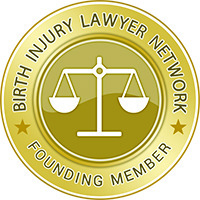When sodium levels in the blood get too low, it’s crucial to get them back up so our bodies can function properly. But negligent sodium adjustment, such as raising sodium levels too quickly, can damage the brain.
So, like adding just the right amount of seasoning to a recipe, doctors have to get sodium levels “just right”. Too little sodium, and a person can suffer hyponatremia. Overcorrect sodium, and they can end up with a dangerous condition called osmotic demyelination syndrome.
Below, we’ll tell you more about the right way to manage sodium levels, plus what constitutes negligent sodium adjustment.

Hyponatremia and Managing Sodium Levels
Sodium is an electrolyte that everyone has in their body. It helps control the balance of water in our cells. It also keeps our muscles and nerves working properly.
But our bodies need just the right amount of sodium to work well. The normal level of sodium in our blood is usually between 135 to 145 milliequivalents per liter (mEq/L). Think of it like the perfect seasoning for a dish – not too little, not too much.
Now, let’s talk about hyponatremia. This happens when there’s too little sodium in our blood. Some of the causes of hyponatremia include:
- Vomiting or diarrhea that goes on for too long.
- Heart failure
- Using diuretics (these reduce fluid buildup in the body)
- Liver disease
- Renal disease
- Syndrome of inappropriate antidiuretic hormone secretion (SIADH)
- Certain head injuries that cause the brain to bleed or swell
- Malnutrition/ Not eating enough
- Drinking too much water
- Abusing alcohol (this can damage the liver)
People with hyponatremia may feel extremely tired, sluggish, and confused. They may not act like “themselves”, and may have trouble walking. Hyponatremia can also cause headaches, nausea, swelling in the feet, and seizures.
If someone has hyponatremia, they need to go to the hospital right away. Doctors should raise their blood sodium levels. But they have to do this with care. Negligent sodium adjustment can cause even worse problems than hyponatremia.

What Are the Guidelines for Sodium Correction?
Sodium correction is a delicate process that has to be done under medical supervision.
The exact guidelines for it can vary. They’re based on the severity of the condition and the individual’s health status. However, here are some general principles:
- Correction has to be gradual. It should be slow and controlled. Doctors need to avoid overcorrection. Rapid changes in sodium levels can damage the brain.
- The process must be monitored. This isn’t a “set it and forget it” procedure. Healthcare providers need to check sodium levels constantly and adjust the treatment plan as needed.
- Doctors need to identify the underlying cause of hyponatremia. Treatment may involve managing fluid intake, adjusting medications, or addressing any medical conditions contributing to the low sodium levels.
- Use hypertonic saline. In most cases, administering hypertonic saline through the veins is the best way to restore sodium fluid balance. This should be done slowly over the course of hours.
- Use the right amount. According to the American Academy of Family Physicians, a patient with low sodium levels shouldn’t receive more than 6 to 12 mEq per L in the first 24 hours, and 18 mEq per L or less in 48 hours.
What Happens if You Overcorrect Sodium?
Negligent sodium adjustment can damage the brain. If doctors overcorrect sodium levels or correct them too quickly, the patient can end up with an irreversible neurologic condition called osmotic demyelination syndrome (ODS). ODS is also sometimes referred to as central pontine myelinolysis (CPM).
ODS affects the nerves in the brainstem, specifically in an area called the pons. The damage involves the protective covering (myelin) of nerve fibers. It disrupts them from functioning in a normal way.
So this means a person with ODS will have neurological symptoms. These symptoms vary from person to person, but in general they include:
- Muscle weakness
- Trouble speaking
- Difficulty swallowing
- Behavioral changes
- Paralysis and coma in severe cases
ODS is preventable. The primary cause of it is negligent sodium adjustment. To avoid causing ODS, doctors need to stick to the guidelines for sodium correction.
Once there’s damage to the myelin, the affected nerves may never recover fully. This is why the neurological damage is sometimes irreversible.
Negligent Sodium Adjustment Can Have Permanent Consequences
A 28-year-old mother went to the emergency department of a hospital because she had been vomiting a lot. Doctors gave her intravenous fluids and antiemetics. But then they transferred her to a different hospital because they lacked beds.
When the second hospital received her, she was worse than before. Although she was conscious, she wasn’t responsive. Doctors immediately knew something serious was going on. But it took them a while to get to the bottom of what had happened.
After running many tests and reviewing the records from the first hospital, they realized that the woman had central pontine myelinolysis. Doctors had raised her sodium levels too quickly. Now she was in a “locked-in” state. Her entire body was paralyzed except for her eyes. She was aware of things going on around her, but couldn’t move or speak.
Unfortunately, the women passed away 10 days later after an episode of aspiration pneumonia. It’s just one example of how dangerous negligent sodium adjustment can be.
As illustrated by the true story above, correcting sodium too fast can have permanent consequences. According to the Cleveland Clinic,
- 94% of people survive CPM, but most live with permanent brain damage
- Only between 25% and 40% of people recover completely.
- About 25% of people with CPM need lifelong care.

Legal Help for Negligent Sodium Adjustment
Leaving hyponatremia untreated can cause a brain injury. But so can treating it the wrong way. If you or a loved one ended up with a serious injury because of negligent sodium adjustment, here’s what you should know:
- You may be a victim of medical malpractice. Healthcare professionals have to meet certain standards when treating sodium imbalances. Failing to do so could constitute medical malpractice. Your healthcare provider could be liable for damages, such as your medical expenses or loss of wages.
- A medical malpractice lawyer can help you. Here’s how: First, your lawyer will investigate the circumstances surrounding the negligent sodium adjustment. They can tell you if negligence occurred. If it did, they will assess who’s responsible for it. That’s called “determining liability”.
You may be eligible for compensation.Your healthcare provider could be liable for damages, such as your medical expenses or loss of wages. Medical malpractice lawyers can help victims understand the extent of their damages, including medical expenses, rehabilitation costs, lost wages, and pain and suffering. They work to ensure that victims receive fair compensation for the harm caused.
The lawyers at Hampton & King have ample experience handling cases involving brain injuries and medical negligence. You can view some of our case results here.
Consulting with a medical malpractice lawyer is a crucial step in seeking justice and holding those responsible accountable. Don’t wait until it’s too late. The statute of limitations, which varies by state, allows only 2-3 years to file a lawsuit after the injury happened. Contact our lawyers now to get started on your negligent sodium adjustment lawsuit.












